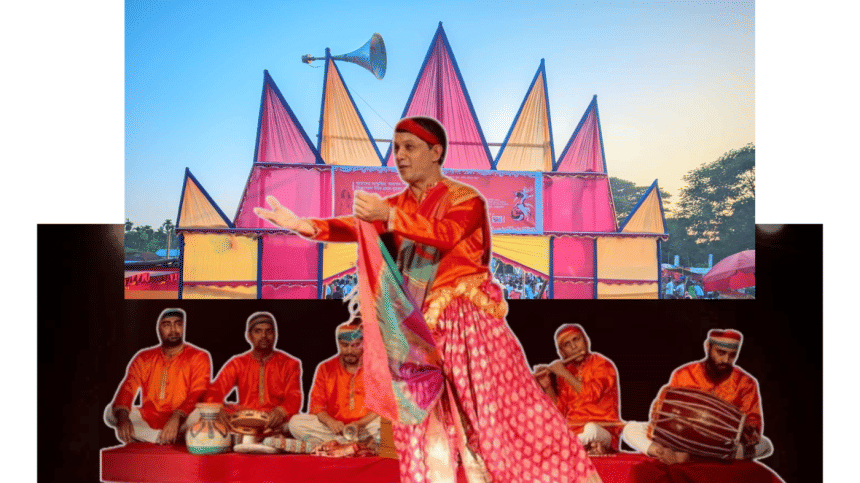Netrokona celebrates rural heritage with ‘Kichcha Utsab 1432’

Netrokona's Kendua hosted the "Kichcha Utsab 1432" for the first time, bringing an entire day and night of rural storytelling traditions to a packed field at Joyhori Sprai Government High School. The festival was organised by the Kendua Upazila administration and cultural group Sarboswar, and inaugurated by Upazila Nirbahi Officer Imdadul Haque Talukdar."Kichcha" — a narrative form rooted in moral tales, Puranic legend and everyday village life — dominated the programme. Performers delivere...
Netrokona's Kendua hosted the "Kichcha Utsab 1432" for the first time, bringing an entire day and night of rural storytelling traditions to a packed field at Joyhori Sprai Government High School.
The festival was organised by the Kendua Upazila administration and cultural group Sarboswar, and inaugurated by Upazila Nirbahi Officer Imdadul Haque Talukdar.
"Kichcha" — a narrative form rooted in moral tales, Puranic legend and everyday village life — dominated the programme. Performers delivered story-based "kichcha" ballads, paik songs and folk dramas, blending myth, ethical reflection and social commentary.
Organisers said the initiative aims to reconnect young audiences with their cultural heritage and revive an endangered oral tradition that once defined rural entertainment.
Renowned artists and folk performers travelled from across Bangladesh for the event. Kuddus Boyati, Baul Salam Sarkar, Saik Siddiki, Dilu Boyati and Ashique Boyati led a lineup that filled the grounds with continuous storytelling, improvised ballads and traditional songs.
Their performances offered a rare, unfiltered look at Bengal's oral repertoire, allowing both scholars and villagers to witness the tradition's full expressive power.
In his remarks, UNO Talukdar reflected on Kendua's recent cultural revival, citing the earlier three-day "Jalal Mela" held to honour Baul legend Jalal Uddin Khan. He said the new festival strengthens Kendua's growing reputation as a centre for folk heritage, noting that kichcha songs are "more than entertainment" and operate as ethical instruction and social memory.
Crowds filled the festival grounds throughout the morning and night. Teachers, cultural workers, local leaders and residents of surrounding areas joined the event, underscoring strong community interest in preserving rural performance arts. Organisers said they plan to make the "Kichcha Utsab" an annual fixture, with the goal of protecting and expanding a tradition at risk of fading from public life.